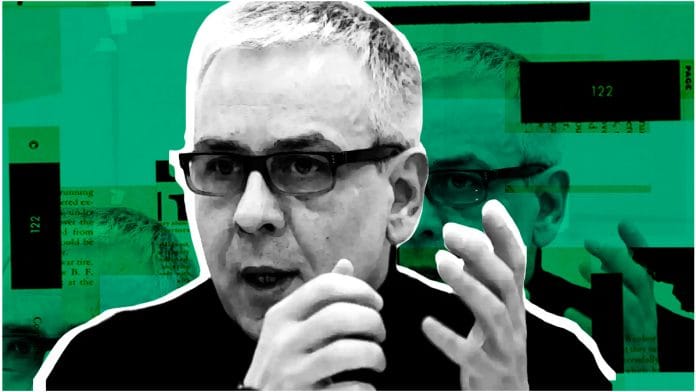New Delhi: From allegedly dreaming of becoming a porn star to washing dishes and working as a waiter to being accused of assassinating Kremlin critic and former spy Alexander Litvinenko by poisoning his green tea, Russian agent Dmitry Kovtun lived a colourful life.
Kovtun died of Covid-19 Saturday evening. He was 56.
Kovtun was one of the two suspects accused of lacing Litvinenko’s green tea with a poisonous substance in 2006. Litvinenko, a former KGB officer who became an outspoken critic of Russian President Vladimir Putin, met Kovtun and Andrei Lugovoi at London’s Millennium Hotel where they allegedly laced Litvinenko’s green tea with radioactive polonium-210, and he died weeks after.
In the same year, British investigators found polonium in all the hotel rooms where Kovtun and Lugovoi had stayed in London, as well as in places they had visited such as Arsenal’s Emirates stadium. The radioactive material was also found on Lugovoi’s plane seat from Moscow.
On his deathbed, the former Soviet spy Litvinenko had accused Putin of being behind the killing, a charge which was vehemently denied by the Kremlin. Russia further refused to extradite both Kovtun and Lugovoi to face trial in the UK.
Lugovoi, now a member of parliament in Russia, said he was mourning the death of his “close and faithful friend” Kovtun. He was the first to report the death. On his Telegram page, he further wrote – “This is an irreplaceable and difficult loss for us.”
While Lugovoi became a prominent MP, Kovtun chose to keep a low profile after the incident and was involved with his security business.
After Litvinenko’s death, the US blacklisted Kovtun in 2017. It banned him from travelling to the United States and froze any of his assets held by American financial institutions.
From childhood friends to co-accused
Born in 1965 in Soviet Russia, Dmitry Kovtun and Andrey Lugovoi were childhood friends and classmates. In the 1980s, both attended the same military camp in Moscow and were charged with the protection of top Kremlin officials. After the dissolution of the Soviet Union, Kovtun moved to Hamburg, Germany, where he met his first wife Inna Hohne.
At the time of Litvinenko’s death, Hohne said that the marriage broke up because Kovtun drank a lot and dreamt of being a porn star.
In the book ‘Assassins: The KGB’s Poison Factory 10 Years On‘ by Boris Volodarsky, it is mentioned that Kovtun did odd jobs such as working as a dish-washer, refuse collector and even a waiter. He then married again, to another German woman named Marina Wall. And after his second marriage also ended, Kovtun moved to Russia and then got in touch with his childhood friend Lugovoy.
Volodarsky’s book mentions that Kovtun had no idea about the poison and the “supporting role” he would play in the operation.
Also read: Vladimir Putin’s parade can’t hide a missing victory






